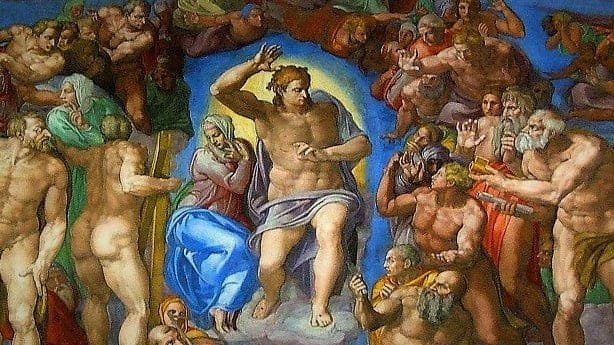POPE FRANCIS’ 2020 REFLECTION ON THE 27TH SUNDAY IN ORDINARY TIME YEAR A: “Authority is service.”

ANGELUS ADDRESS
4 October 2020
Dear brothers and sisters, good day!
In today’s Gospel passage (see Mt 21:33-43) Jesus, foreseeing His passion and death, tells the parable of the murderous vintners, to admonish the chief priests and elders of the people who are about to take the wrong path. Indeed, they have bad intentions towards Him and are seeking a way of eliminating Him.
The allegorical story describes a landowner who, after having taken great care of his vineyard (see v. 33), had to depart and leave it in the hands of farmers. Then, at harvest time, he sends some servants to collect the fruit; but the tenants welcome the servants with a beating and some even kill them. The householder sends other servants, more numerous, but they receive the same treatment (see vv. 34-36). The peak is reached when the landowner decides to send his son: the winegrowers have no respect for him, on the contrary, they think that by eliminating him they can take over the vineyard, and so they kill him too (cf. vv. 37-39).
The image of the vineyard is clear: it represents the people that the Lord has chosen and formed with such care; the servants sent by the landowner are the prophets, sent by God, while the son represents Jesus. And just as the prophets were rejected, so too Christ was rejected and killed.
At the end of the story, Jesus asks the leaders of the people: “When the owner of the vineyard comes, what will he do to those tenants?” (v. 40). And, caught up in the logic of the narrative, they deliver their own sentence: the householder, they say, will severely punish those wicked people and entrust the vineyard “to other tenants who will deliver the produce to him at the proper time” (v. 41).
With this very harsh parable, Jesus confronts his interlocutors with their responsibility, and He does so with extreme clarity. But let us not think that this admonition applies only to those who rejected Jesus at that time. It applies to all times, including our own. Even today God awaits the fruits of His vineyard from those He has sent to work in it. All of us.
In any age, those who have authority, any authority, also in the Church, in God’s people, may be tempted to work in their own interests instead of those of God. And Jesus says that true authority is when carried out service; it is in serving, not exploiting others. The vineyard is the Lord’s, not ours. Authority is a service, and as such should be exercised, for the good of all and for the dissemination of the Gospel. It is awful to see when people who have authority in the Church seek their own interests.
Saint Paul, in the second reading of today’s liturgy, tells us how to be good workers in the Lord’s vineyard: that which is true, noble, just, pure, loved and honoured; that which is virtuous and praiseworthy, let all this be the daily object of our commitment (cf. Phil 4:8). Repeat: that which is true, noble, just, pure, loved and honoured; that which is virtuous and praiseworthy, let all this be the daily object of our commitment. It is the attitude of authority and also of each one of us, because every one of us, even in a small, tiny way, has a certain authority. In this way we shall become a Church ever richer in the fruits of holiness, we shall give glory to the Father who loves us with infinite tenderness, to the Son who continues to give us salvation, and to the Spirit who opens our hearts and impels us towards the fullness of goodness.
Let us now turn to Mary Most Holy, spiritually united with the faithful gathered in the Shrine of Pompeii for the Supplication, and in October let us renew our commitment to pray the Holy Rosary.
SOURCE: http://w2.vatican.va/content/francesco/en/angelus/2020/documents/papa-francesco_angelus_20201004.html
EMPHASIS MINE.


